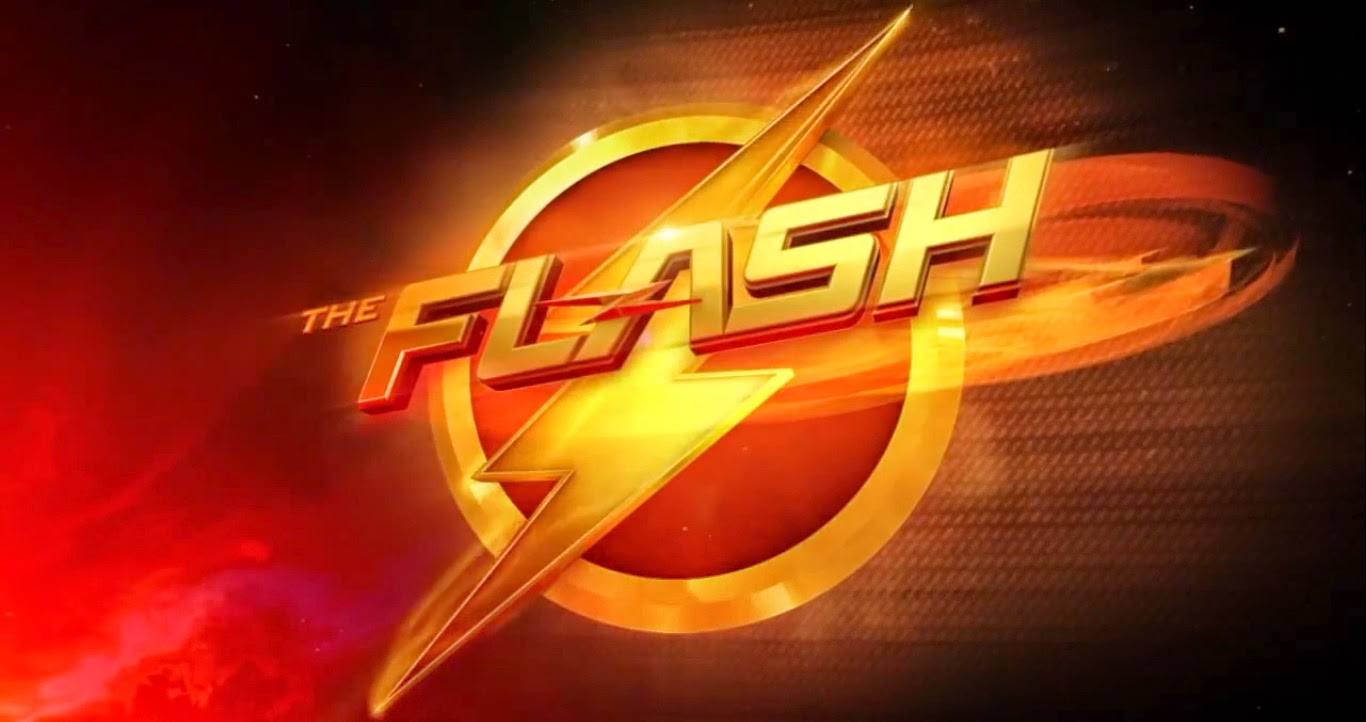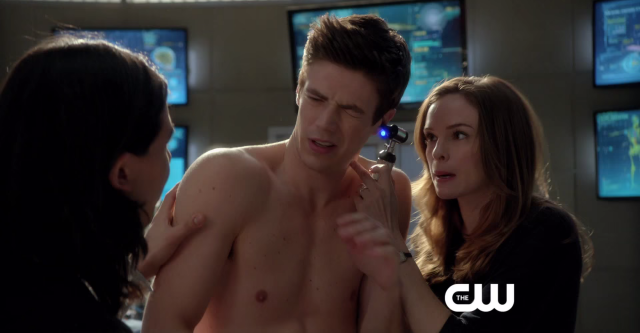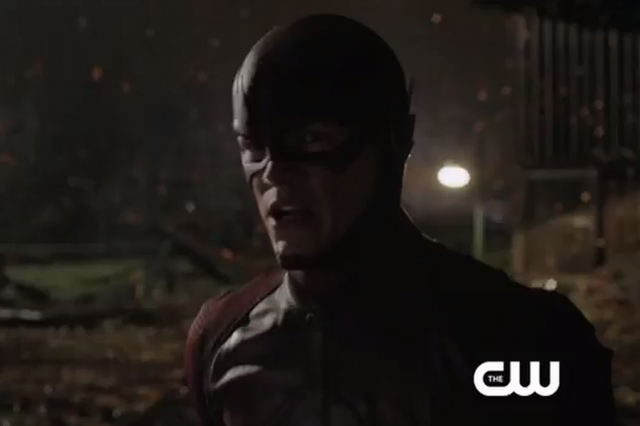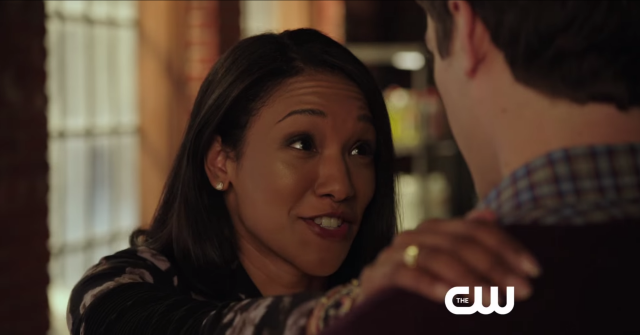NOTE: Full spoilers for The Flash’s pilot are present in this review.
After Arrow has spent two great seasons laying the groundwork for a very promising DC Television Universe hosted by The CW, The Flash is aiming to take it ever further. As a spin-off to Arrow, currently the most viewed and well-received show on The CW, The Flash had some mighty big shoes to fill as well. Nonetheless, its first episode has made the task look easy, as The Flash is a very confident new series that has burst out of the gate firing on all cylinders.
If you have any love of superhero entertainment, this is a show you’re going to want to tune in to!
The series begins with curious and well-meaning assistant crime scene investigator, Barry Allen arriving late yet again to another crime scene. Tormented by the memory of his mother’s murder, which his father has been falsely imprisoned for, Barry is obsessed with discovering the answers to any given mystery, considering that his mother appeared to have been killed by a man in a flash of lightning. Barry will no doubt get more mystery than he could ever want however, when an accident with a particle accelerator douses him with chemicals and leads to him getting struck by lightning, rendering him comatose for nine months.
Of course, you may have already saw some of this in the middle of Arrow’s previous second season. Thankfully, The Flash still sets the foundation of the show perfectly, expanding on some of the events that led to Barry’s transformation into The Fastest Man Alive, without being bogged down too much by setup for those who have already been keeping up with Arrow. In general, the pilot moves at a pretty brisk pace, which is fitting, considering the DC hero that we’re dealing with in this new series.
After Barry wakes up, it’s not long before he sees the world appear to slow down at random intervals, simultaneously suffering super-charged muscle spasms all the while. It turns out, the world isn’t slowing down, but Barry is actually moving so fast that the rest of the world appears slow to him. From there, the disgraced scientists of S.T.A.R. Labs, the research firm behind the botched particle accelerator experiment that should be quite familiar to avid DC fans, try to study Barry and learn more about his abilities.
It goes without saying, but Grant Gustin has settled beautifully into the title role, and as this new show’s leading man, he’s both charming and loveable. He begins with the undeniable taste of an underdog, a far cry from the ruthless, skilled and brutal portrayal of Stephen Amell’s Green Arrow in Arrow, but despite his youth and unimposing presence, Gustin makes the role his own. He’s lots of fun, and wears the red garb well, making him a hero that viewers will no doubt be eager to get behind for this new series.
Another strength with the cast for The Flash overall is, like the landscape of Central City itself, it echoes a similar feel to Arrow, but still distinctly boasts its own style. Carlos Valdes’ Cisco Ramon and Danielle Panabaker’s Caitlin Snow are two halves of an entertaining scientist cliche, with Ramon being wide-eyed and impressionable, and Snow being no-nonsense and impatient. They help to give the show two sides of a very youthful energy, with the older S.T.A.R. Labs head, Harrison Wells, played by Tom Cavanagh, left to give the show’s vigour a sense of credibility.
It needs that credibility too, because The Flash wastes no time blowing up the DC Television Universe’s scale tenfold! Immediately, it’s established that the particle accelerator accident causes all sorts of dimensional hiccups and theoretical phenomena, which will no doubt lead to plenty of larger-scale super-villain threats over the course of the show. Not only that, but teases of very abstract DC foes, including Professor Zoom and Gorilla Grodd, pop up every so often throughout the pilot. They won’t be noticed by casual viewers and newcomers, but DC enthusiasts will find plenty of nods to the lore of the comics to get them excited for what’s to come, particularly in the final minutes, where it’s revealed that Dr. Wells harbours a few secrets of his own.
The foundation for the villains in The Flash is mostly sound, particularly given that it sets the stage for foes that would never be possible on Arrow. The only downside here is that the villain in the pilot, Clyde Mardon, the show’s initial portrayal of weather-bending DC villain, Weather Wizard, is pretty underwhelming. Clyde is simply a thug who is content to use his abilities to rob banks, and then develops a god complex seemingly on a whim. This does lead to a cool sequence where Barry has to try and master his super-speeding powers by unfurling a tornado, but it also presents a danger that The Flash may have the same problem as some of Arrow’s early episodes, which were bogged down by shallow, highly disposable villains-of-the-week.
Fortunately, as DC loyalists know, Clyde isn’t the real Weather Wizard, which is why his getting shot dead by Barry’s legal guardian, Central City Police Detective, Joe West, isn’t too big of a deal in the end. Clyde’s brother, Mark Mardon is the one who ultimately serves as Weather Wizard in the DC Comics, and, naturally, the pilot establishes that Clyde’s brother is still at large. Clyde may have bought the farm, but Mark is sure to come back with a vengeance as the actual Weather Wizard down the line.
Speaking of Detective West, it was interesting that the show decided to immediately make him learn Barry’s secret identity at the close of the episode. This helps to separate the character from Detective Lance over on Arrow for sure, even if it does lead to the tired cliche of West stressing to Barry that he can’t tell West’s daughter about the fact that he’s The Flash. Because reasons. Still, the dynamic between Barry and Detective West carries plenty of promise for future episodes, given that Detective West was already Barry’s professional superior as well as his adopted father, and is now the first person outside of S.T.A.R. Labs to be aware of Barry’s superhero identity.
As for Iris West, Barry’s future wife in the DC Comics, she’s played as kind of a well-meaning, but oblivious girl best friend-type here, and her change in race to an African-American character in this series is ultimately pretty inconsequential. She’s in a relationship with obvious dick detective, Eddie Thawne, another character that’s bound to have some interesting developments later, if his DC history is any indication, and doesn’t seem to notice the fact that Barry thinks of her as more than his adopted sister. In the early moments of the pilot, her declaration that Barry needs to find a girlfriend and the right person that will stand by him through thick and thin is enough to get DC fans groaning, but in a good way.
When it comes down to it, beyond its lacklustre antagonist, the debut episode of The Flash is just pitch-perfect superhero entertainment. It looks cool, it’s loads of fun, and it finds its footing even faster than Arrow did! There’s even a very cool, albeit brief cameo by Stephen Amell in his beloved role of Green Arrow, encouraging Barry to embrace his superhero identity after Barry flees to Starling City in a fit of frustration. It’s a great testament to the fact that The Flash, like Barry himself, is well aware of what inspired it, but is nonetheless not afraid to forge its own path.
This is one of the biggest reasons why the debut of The Flash is a resounding success. It’s an excellent expansion of the DC Television Universe that began with Arrow, and its copious helpings of entertainment and style leave no end of promise for episodes to come!





